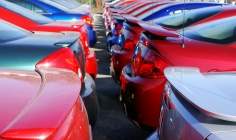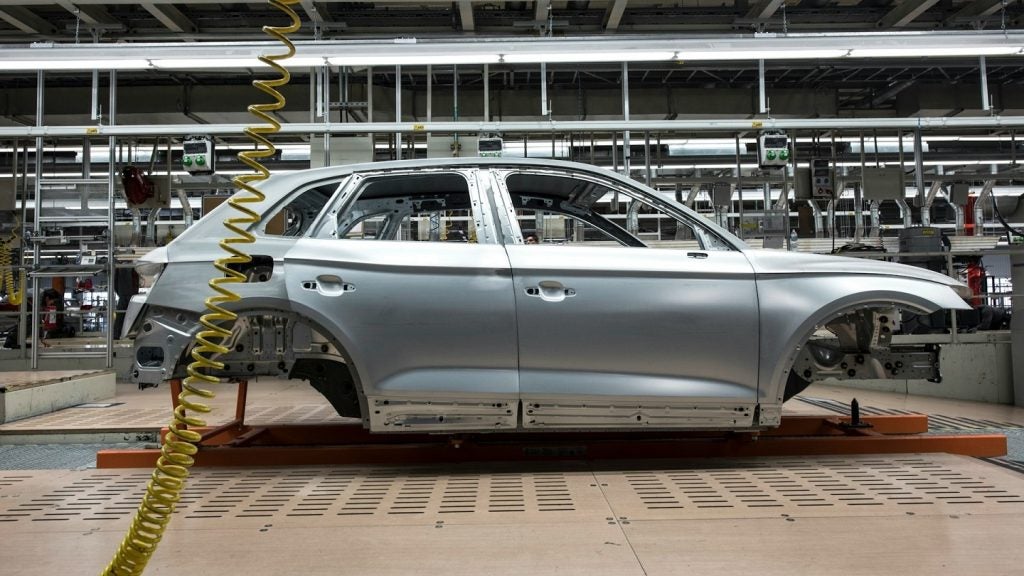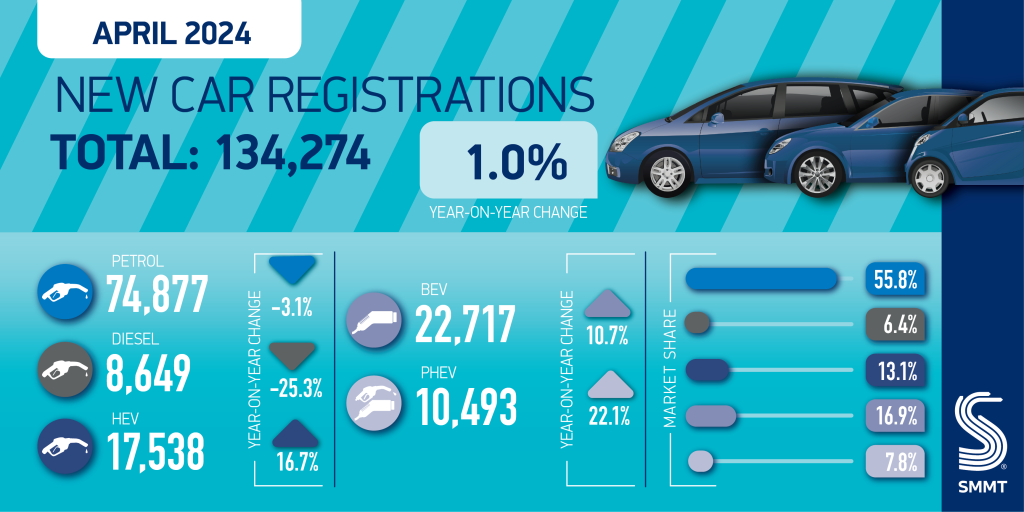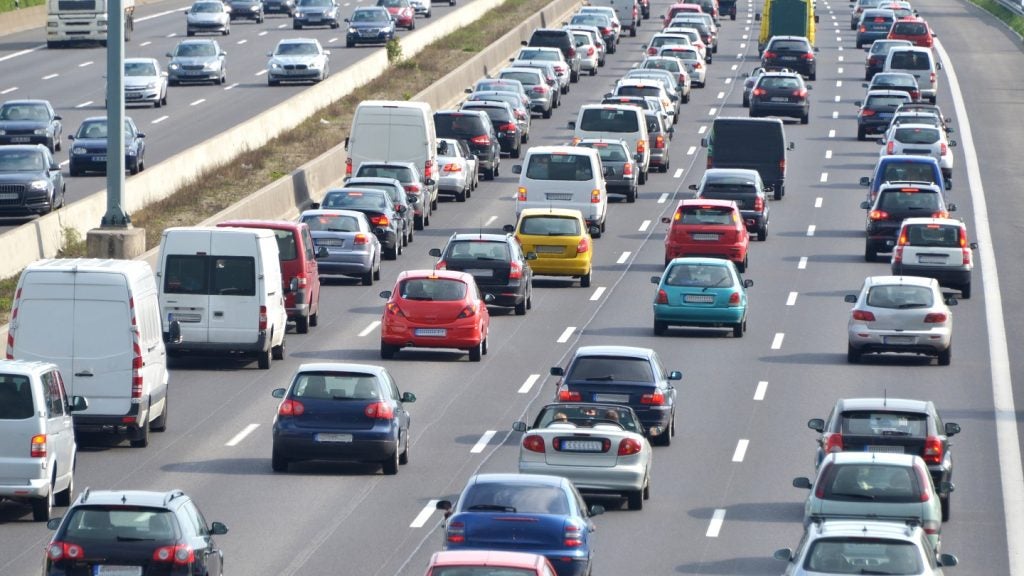
The number of new cars sold in the UK in January reached 174,564, according to The Society of Motor Manufacturers and Traders (SMMT), 2.9% more than in January 2016, and the highest level for the month since 2005.
Significantly, 7,279 alternative fuelled vehicle sales in the month meant that AFVs claimed over 4% of the market for the first time.
This growth came at the expense of diesel cars, of which 78,778 were sold in January. This was 4.3% less than in the same month last year. Petrol car sales increased 8.9% year-on-year to 88,507, or slightly over 50% market share.
The private market grew 5.0% year-on-year to 76,729, marking a turnaround after several months of decline in the second half of 2016. The fleet market also grew, albeit at a slower rate – 1.4% – to 91,181.
Brands and models
The Ford Fiesta started the year as it ended the last, as the bestselling model in the country. Below it were the VW Golf, the Ford Focus, The Mercedes-Benz C Class and the Vauxhall Astra.
How well do you really know your competitors?
Access the most comprehensive Company Profiles on the market, powered by GlobalData. Save hours of research. Gain competitive edge.

Thank you!
Your download email will arrive shortly
Not ready to buy yet? Download a free sample
We are confident about the unique quality of our Company Profiles. However, we want you to make the most beneficial decision for your business, so we offer a free sample that you can download by submitting the below form
By GlobalDataPartly thanks to the strong sales of the C Class, Mercedes managed to break into the top three best-selling models in January. A sales increase of 10.6% to 13,048 was enough for the German manufacturer to leapfrog Volkswagen for the month, despite VW sales growing 7.6% themselves.
Ford remained the best-selling brand in the UK, and actually grew its market share slightly thanks to a 13.0% increase in sales, to 22,778. Vauxhall remained the second largest manufacturer by volume in January, despite sales slowing 9.1% to 13,870.
Kia was arguably the biggest winner in January, with sales growing 51.2% year-on-year to 7,661. This was enough to lift it over Toyota, Hyundai and Peugeot, which all sold more than it in the same month last year.
Despite the growth in January, most commentators maintained there would be a cooling in the market over the course of 2017. For example, Mike Hawes, SMMT chief executive, said, “2017 got off to a good start in the new car market, buoyed by a great range of new models which are safer and cleaner than ever before. It’s encouraging to see alternatively fuelled vehicles benefiting from this positive growth, reaching a record market share. After record growth in 2016, some cooling is anticipated over the coming months, but provided interest rates remain low and the economy stable, the market is in a good position to withstand its short-term challenges.”
Richard Jones, managing director at Black Horse said: “It’s pleasing to see a strong new car market in the first month of the year, and I expect the rest of Q1 to see sales remain at similarly resilient levels. It is possible that the figures in some segments are partially fuelled by impending tax changes, with demand effectively being pulled forward as a result.
“It is difficult to call exactly how 2017 will pan out but this time last year many were predicting a cooling off from the unprecedented sales levels of recent years. We saw that to an extent, but still saw an overall 2.3% increase on the previous year. With this in mind, it’s almost inevitable that record levels will cool at some point, particularly against a backdrop of potential rise car prices due to the weakness of the pound and possible implications of Brexit. However, dealers can guard against this particular challenge by emphasising the importance of finance deals which I expect to remain very competitive. More than ever then, dealers should therefore ensure customers genuinely understand how finance deals can help them access the vehicles they want.”
Chris Bosworth, director of strategy at Close Brothers Motor Finance, described the growth in private sales as ‘interesting’, but noted that the effects of rising inflation on consumer spending and the changes to salary sacrifice from April 2017 to the business market will be the major challenges to the private sales market.
He said: “After a nine month period of sustained decline, it’s interesting to note that new-car private sector sales are again on the increase. It’s also encouraging to see that the growth of the AFVs shows no sign of slowing, with that segment posting nearly 20% growth to take a record 4.2% market share. Given that last year (particularly in the second half) we saw consumers flocking to the used-car sector and preferring to finance 1-3 year ‘nearly new stock’ over brand new vehicles, it’ll be interesting to see whether the upturn of private new car registrations continues throughout 2017.
“Increasing production levels, registrations and consumers moving from the new to the used car market has had a positive knock-on effect for car-dealerships throughout the UK. Our recent Dealer Satisfaction Survey highlights this, with 65% of dealers expecting growth this year.”







